Money services that cash checks in return for quick payment in Japan are known as check cashing services.
Cheque cashing services in Japan will provide physical cash or money deposited into a Japanese bank account for a fee.
Cashing your checks at a check cashing service in Japan allows you to have access to your money even if you do not have a bank account. The number of unbanked and underbanked Japanese people in the Japan is increasing. In return for a fee, cheque cashing firms in Japan will cash checks of various kinds for Japanese residents, including paychecks.
Cheque cashing in Japan is significantly quicker than waiting for the check to clear in a Japanese bank.
The first step in cashing a cheque in Japan is to deposit it into a bank account in Japan. It is common to find a convenient ATM or bank branch near you. However, you should know that most banks have a five-day holding period before the money can be released. Depending on the amount of money in your account, you may receive your money a day or two sooner than you planned. In this case, the bank must verify your identity.
Another way to cash a check is to take it to a bank teller in Japan. The teller will confirm that the funds in your account are available. The bank's name should be written on the check. While banks in Japan offer this service, not all of them do, and some charge a fee. If you have received a check from a bank that does not have a physical branch in Japan, you will need to make arrangements in advance.
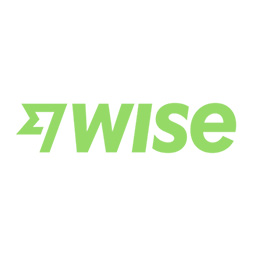 Visit Wise Multi-Currency Account
Visit Wise Multi-Currency Account
Used By: 11000000
Currencies Available: 54
Transfer Fees: 0.5%-1%
Payment Methods: Bank transfer, debit card, credit card, SOFORT transfer
iOS App : yes, Android App : yes
LiveChat:
Min Transfer: 1 USD
Max Transfer: 1000000 USD/transaction/day (personal), 3000000 USD/transaction/day (business)
Year Founded: 2011
 Visit Remitly
Visit Remitly
Used By: 3000000
Currencies Available: 63
Transfer Fees: 0-3.99$
Payment Methods: Bank transfer, credit/debit card
iOS App : yes, Android App : yes
LiveChat:
Min Transfer: US$1.00
Max Transfer: US$20,000.00
Year Founded: 2011
 Visit Wise
Visit Wise
Used By: 11000000
Currencies Available: 54
Transfer Fees: 0.5%-1%
Payment Methods: Bank transfer, debit card, credit card, SOFORT transfer
iOS App : yes, Android App : yes
LiveChat:
Min Transfer: US$1.00
Max Transfer: US$1,000,000 (varies based on currency)
Year Founded: 2011
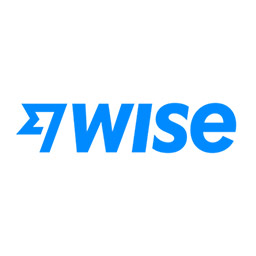 Visit Wise Business
Visit Wise Business
Used By: 11000000
Currencies Available: 55
Transfer Fees: 0.5%-1%
Payment Methods: Bank transfer, debit card, credit card, SOFORT transfer
iOS App : yes, Android App : yes
LiveChat:
Min Transfer: 1 USD
Max Transfer: 1000000 USD/transaction/day (personal), 3000000 USD/transaction/day (business)
Year Founded: 2011
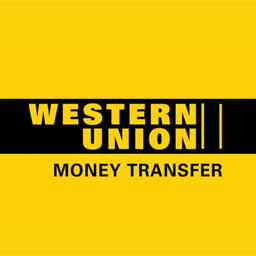 Visit Western Union
Visit Western Union
Used By: 15000000
Currencies Available: 38
Transfer Fees: up to 3%
Payment Methods: Cash, bank transfer, debit card, credit card (varies from country)
iOS App : yes, Android App : yes
LiveChat:
Min Transfer: $1.00
Max Transfer: $10,000.00 (varies)
Year Founded: 1851
 Visit MoneyGram
Visit MoneyGram
Used By: 150000000
Currencies Available: 46
Transfer Fees: 1.99$
Payment Methods: Bank transfer, debit/credit card, cash
iOS App : yes, Android App : yes
LiveChat:
Min Transfer: $1.00
Max Transfer: $10,000.00 (varies)
Year Founded: 1940
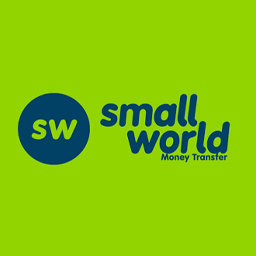 Visit Small World
Visit Small World
Used By: 15000000
Currencies Available: 54
Transfer Fees: 1%-2%
Payment Methods: Bank transfer, credit/debit card
iOS App : yes, Android App : yes
LiveChat: yes
Min Transfer: US$1.00
Max Transfer: Varies (US$2,000.00 for card transfers)
Year Founded: 2005
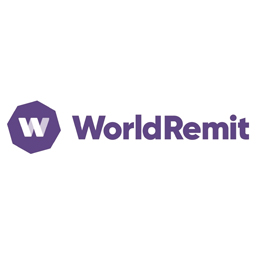 Visit WorldRemit
Visit WorldRemit
Used By: 5000000
Currencies Available: 77
Transfer Fees: 0.99$-3.99$
Payment Methods: Bank Transfer, Debit Card & Credit Card.
iOS App : yes, Android App : yes
LiveChat: yes
Min Transfer: 1 USD
Max Transfer: 9000 USD
Year Founded: 2010
 Visit Ria
Visit Ria
Used By: 61000000
Currencies Available: 96
Transfer Fees: 5$-35$
Payment Methods: Bank transfer, debit/credit card, cash
iOS App : yes, Android App : yes
LiveChat: yes
Min Transfer: None
Max Transfer: US$2,999.99 / day
Year Founded: 1987
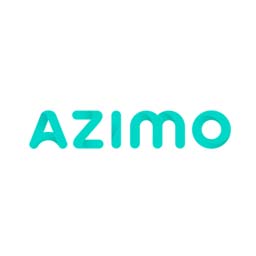 Visit Azimo
Visit Azimo
Used By: 500000
Currencies Available: 139
Transfer Fees: 2.99%
Payment Methods: Bank transfer, debit/credit card, SOFORT, iDeal
iOS App : yes, Android App : yes
LiveChat:
Min Transfer: £10.00
Max Transfer: £250,000.00 (SWIFT), £12,000.00 (card)
Year Founded: 2012
 Visit Western Union Singapore
Visit Western Union Singapore
Used By: 150000000
Currencies Available: 38
Transfer Fees: up to 3%
Payment Methods: Bank deposit, cash pick-up, mobile wallet
iOS App : yes, Android App : yes
LiveChat: yes
Min Transfer: S$1.00
Max Transfer: S$10,000.00 (can be even lower depending on the currency)
Year Founded: 1851

The process of cashing a cheque in Japan, it is not that difficult. All you need is a valid Japanese ID, and some cheque cashing businesses in Japan may accept an identification without a photo. Private lending companies in Japan can cash a cheque without a photo, but it may be more expensive. If you are not sure where to go to cash a check, we have compiled a detailed list of money service businesses that allow Japanese people to recieve cash for their cheques. They have an established market corner in cheque cashing services in Japan, and have many are franchises.
Some cash a cheque services in Japan have physical stores and will allow you to convert your cheque for cash for a small fee, this can also be done online in Japan. Typically, cheque cashing services use a driver's license or other Japanese government-issued identification to cash a check. However, if you don't have one, another form of identification will do. The Japanese government requires banks in Japan to have an identity verification policy also know as KYC or know your customer. However, you can still cash a cheque without a bank account in Japan if you can show an ID.
The easiest way to cash a cheque without a bank account in Japan is to visit a cheque cashing store. Some stores in Japan require a photo ID and charge a percentage of the check's amount, but others do not charge a fee. You can also sign over your cheque to a trusted friend or family member in Japan, and have them cash it on your behalf. Some cheque cashing places fund your account with your cheque, you can use it to buy things or services in Japan.
If you are an existing bank customer in Japan, you can cash your cheque at a branch of your bank in Japan. While the service is free, you might have to pay a small fee if you are not a customer of that bank. This can be expensive, so it is worth checking the Japan bank's fee policy before you cash your check. A credit union may offer you the same service, with lower fees for Japanese residents.
A grocery store is another convenient option for cashing a cheque in Japan. Although you will need to pay a fee, you can cash checks at Japanese grocery stores. The maximum amount you can cash per cheque will vary from store to store in Japan, and you may need to show Japanese government ID to avoid paying an extra fee. A Japanese grocery store can also cash a money order. These stores accept all kinds of checks, so be sure to cheque what your options are, and the fees involved.
An issuing bank in Japan is a financial institution that issues credit cards and debit cards to customers in Japan. The issuing bank accepts payments from Japanese cardholders, processes payments, and provides customer support to its customers in Japan. Issuing banks issue credit cards in the name of the major card companies, which are ultimately responsible for the purchases of their clients. The processing bank in Japan, on the other hand, acts as a middleman between a merchant and a financial institution, and facilitates the transfer of funds. cheque cashing services in Japan, meanwhile are 3rd party entities, that establish a relationship with both banks and use online payment processing software to complete the cheque cashing transaction.
Issuing banks in Japan provide bank services like credit cards to merchants. When consumers in Japan pay for products and services using their cards, they make a payment to the issuing bank, which then forwards the funds to the merchant account. An issuing bank in Japan will also develop and manage credit card reward programs, balancing better incentives with profit margins. An issuing bank will also handle chargebacks and other disputes. So, it is important to understand what an issuing bank does in reqards to cheque cashing in Japan.
Check cashing businesses in Japan also offer secondary services. Many offer payday loans, bill-paying, and money transfers to Japanese consumers. Some also sell lottery tickets, bus passes, and prepaid phone cards in Japan. Many even offer postage stamps. All of these services in Japan are convenient and often more affordable than using a Japanese bank. Check-cashing stores are a great choice if you need to cash your checks quickly in Japan.
Grocery stores in Japan may also offer check-cashing services. Although fees vary by location, many grocery stores charge a fee and require Japanese government ID to cash a check. However, the fees may be cheaper for payroll or Japanese government issues cheques. Likewise, grocery stores in Japan offer money-order services. But make sure to check their fees and policies before committing to using such a cheque cashing service.
A Cheque Cashing Store Or Postal Service is a great option for many consumers in Japan. Banks can be pricey, and many consumers in Japan find the fees too high to justify the inconvenience. Moreover, many people who may use a cheque cashing service in Japan may be on a bank blacklist for past irregularities. That means they cannot wait for a cheque to clear, and neither do they have time to visit a Japan bank. Many consumers in Japan cannot wait for a cheque to clear before they can pay their bills.
In addition to a post office in Japan, a cheque cashing store or a retail outlet is an excellent option if you need cash right away. The postal service in Japan has been enhancing its services, and these expansions will help them generate new revenue. Some cheque cashing services allow you to send cheques through the mail which is much easier than using a postal office in Japan for cashing your cheque.
With the growth of the internet cashing cheques online has become very popular in Japan.
To deposit a cheque with the app, simply sign in with your Japan bank's app and choose the checking or savings account that you have. Japanese cheque holders will need to have good lighting and a dark background for the photo. A picture of the front and back of the cheque is required. The back of the cheque must be signed as well. If you fail to make these steps, the app will prompt you to take a picture of the back of the check.
If you are considering Online Cheque Cashing in Japan, you should know the benefits and drawbacks of the service in Japan. While it is helpful when you need cash immediately, it may also lead to a debt spiral and ruin your finances if left unchecked. To avoid falling into this trap, you should consult with a nonprofit Japan credit counseling service. These agencies in Japan provide budgeting assistance and debt analysis and offer programs to help you manage your debt. In addition, these services can help you avoid financial problems.
Thankfully, there are several banks that will accept foreign cheques in Japan. You can usually cash a foreign cheque in your home country if you already have an account there. However, you should know that there are exceptions. You can pay by collection if you have paid the cheque in the country you are visiting. This option, however, involves waiting in the bank for your cheque in Japan to clear, which can take weeks. Additionally, you will need to provide the details of your Japanese and international account to receive a foreign cheque in Japan.
If you are looking for the best way to deposit a foreign cheque in Japan, you will need to know which banks accept foreign cheque in Japan. Some banks will only accept certain types of foreign cheque in Japan, and you will need to ask the Japanese bank before you make any arrangements. Check out our article on how to clear a foreign cheque in Japan before you send it overseas. It will give you some tips and tricks to make it easier for you.
When cashing a cheque in Japan, you will need to provide a photo ID, such as a Japanese driver's license. Other acceptable forms of identification include state ID's or military ID's. Keep in mind that different banks have different policies regarding ID's. If you are not sure whether your Japan government-issued ID is valid, check with the bank that issued it first. If you do not have a Japanese driver's license, you can present a learner's permit, which is accepted in many places.
The financial institution inJapan may also require a utility bill. If you are visiting from out of state or do not have an account with that bank in Japan, you may need to produce a utility bill as second form of identification. Otherwise, your driver's license, state ID, or military identification card will suffice. These are generally sufficient proof to cash a cheque in Japan. If you do not have a utility bill, you may also need to present an old driver's license or a other form of identification.
If you are wondering where to avoid cashing a cheque in Japan , here are some tips to help you avoid problems when cashing a cheque in Japan. Checking your Japanese bank statement will help you to know the status of your cashed cheque funds in Japan. A bounced cheque in Japan means that you will be charged a non-sufficient funds fee in Japan. To avoid this, it is better to have electronic alerts and use a credit card to pay bills. You can also call your financial institution in Japan to find out if a cheque is overdrawn.
While cheque cashing services are convenient and useful in Japan, they often charge excessive fees to Japanese users. As they target the lower income population in Japan, you may be charged between five and ten percent of your paycheck. It could cost you several hundred JPY. This is why it is best to avoid cashing a cheque in Japan if you can. Another option is to cash the cheque in the bank of issue.
Many banks in Japan allow you to cash your checks electronically by taking a picture of it and following the directions provided on the cheque cashing app. To avoid a fee, the photo must be clear and well-lit. If you are not an account holder in Japan, you will probably have to cash the cheque in person. However, you can get prepaid cards from large financial institutions in Japan.
If you have no bank account in Japan , your best option is to endorse the cheque to a friend or family member. They can cash your cheque for free, as long as you have a trusting relationship with them. You may have to provide identification to prove you are not being pressured. You might also be asked to fill out a form certifying that you are not a Japanese bank customer. You may find this method more convenient than going to a bank teller in Japan.
Cashing a cheque online is the most convieniant and quickest method. There are dozens of cheque cashing services online that offer fast cheque money services in Japan and are financially regulated to serve Japanese customers.
Grocery stores in Japan are convenient options for cashing checks. Fees vary by store, but most will require that you present a government ID before they cash your check. In addition, grocery stores in Japan will cash personal checks for a lower fee than other locations.
The length of the holding period depends on the check's value, the balance in your account, and your relationship with your bank in Japan. A hold can happen for a variety of reasons, including an unusual deposit. If your cheque is rejected by the bank in Japan, you should wait until the cheque clears. Some banks require a physical trip to your bank to process the check, which may take longer than anticipated. When this happens, you should deposit the cheque or wait to use it.
Bank drafts are often used for larger amounts or if a business is not willing to accept a personal cheque in Japan. Most banks require 24-hour notice before processing a bank draft, and some charge a fee for them. Another way to shorten the amount of time you have to wait to cash a cheque in Japan is to transfer the money directly to your bank account in Japan .
How much does it cost to cash a cheque in Japan? The answer varies by bank in Japan. Some Japanese banks charge an average of 2 JPY - 20 JPY to cash a cheque. Japanese Banks usually require some form of identification before they'll cash a cheque. The acceptable forms of ID will vary from bank to bank. Sometimes a person must present a Japan government-issued ID to cash a check in Japan. If the cheque was written to more than one person, it will be more difficult to cash. However, if you can obtain a copy of your Japanese ID, you can easily cash it.
Another option is to purchase a prepaid debit card in Japan. These cards let you deposit cheques and add money to your account balance. You can also make withdrawals from them. Depending on your Japan bank's policy, a prepaid debit card may have a monthly fee. It's also worth looking into whether you can save money by using a prepaid debit card. You may be able to avoid these fees altogether by using your bank's ATMs.
There are many ways to deposit a cheque into your bank account in Japan . You can visit a branch and pay in a cheque over the counter. You can also use an online or mobile app to pay in a cheque in Japan. In the branch, fill out a paying-in form and give it to the cashier. Some banks even have a paying-in machine. If you would prefer to pay with cash, you can also use the ATM.
Another way to deposit a cheque is to visit the bank in Japan where you received the cheque. You can then make use of your debit card to withdraw the funds. This method can take a day or two. Once the money is in your account, you can use your debit card to withdraw cash or withdraw it from an ATM in Japan. Remember to bring your photo Japanese ID with you. This way, you can be sure that the money will be released to your bank account in Japan .
When choosing a business cheque provider in Japan, make sure you choose a reputable one that will keep your Japanese information confidential. You can find business cheque vendors in Japan by searching the Internet, or ask other businesses for recommendations. When choosing a business cheque cashing service in Japan, look for a company that offers competitive fees for converting business cheques to cash in Japan. Also, make sure that you choose a company that is financially regulated.
Cashing a business Cheque in Japan is simple - you just need to show the bank a form of Japanese ID and your proof of address. You can use a utility bill in Japan or a bank statement to prove your identity, and a letter from your accountant or solicitor can provide an official certificate of authenticity if required. If you have the documents needed, the cheque should be processed within a few working days for your payment to reach your Japanese business account.
A bank cheque in Japan is a document that instructs a bank to pay a certain amount of money to another person or organization. This bank cheque document in Japan is made payable to the person or company listed on the cheque in Japan. The Japanese cheque withdrawer is called the drawer, and the Japanese recipient is known as the payee. The payee can also endorse the cheque in Japan. In either case, the recipient is obligated to pay the amount specified in the bank cheque.
There are many varieties of this type of cheque payments in Japan. These are issued by banks in Japan to people to whom they owe money. Each has a name and a drawee, which is usually preprinted on the document. The drawee is the institution that issued the cheque in Japan , and the amount written on the cheque is its value in currency.
These checks are issued by the Japanese government and require a signature on the back. If the Japanese cheque is for joint funds, one joint filer must endorse it and deposit it into the joint account in Japan. If you have received a government cheque in Japan and lost it, there are a few things that you can do. First, you should make sure that your financial institution in Japan validated it before posting it out to you. The Japanese government agency will check your identity and send you a form to fill out. Once they have verified your Japanese identity and the cheque is in their system and not cashed, they will send you a replacement.
Benefit Cheques in Japan are payment options for certain types of Japanese government assistance. You must have opted to receive these payments electronically when you registered for government assisted benefits in Japan. The process to switch to electronic payment for these types of payments is simple and quick in Japan.
Using direct deposit eliminates the need to deposit cheque in Japan, making them much more secure. Direct deposit cheque payments in Japan also reduces paper use, helping the process go green. It is a great choice for employers looking to save money and attract quality workers in Japan. Japanese businesses can save time and money on payroll administration with direct deposit cheque payments in Japan.
Gaming and lottery games have been around for hundreds of years, but only recently have they introduced payouts in the form of cheques in Japan. Gaming and lottery cheque payments are made by various organizations in Japan to reward those who win on gambling and lottery tickets. Many online cheque cashing services in Japan are able to process gaming and lottery cheques for Japanese customers.
Insurance cheques in Japan are generally made payable to the person who issued or is marked as the payee of the insurance policy in Japan. Sometimes they contain the names of other institutions or parties. Cashing insurance cheques them will require the signature of all parties, including the insured person. However, Japanese insurance cheque holders may be able to cash a cheque if the insurance company is aware that you are listed as a legit recipient in Japan. When it comes to cashing an insurance cheque, make sure you follow the terms and policies of the insurance company in Japan. You may need to go through a few hoops to receive your money.
Once you have received a settlement cheque from an insurance company in Japan, you should make sure that the cheque is worth the full value of your claim. You may receive a partial amount, but if you choose to cash it, the insurance company in Japan will consider your cashing as an acceptance of the claim and void your rights. This is the most common mistake Japanese people make.
If you received a cheque in Japan in the mail, there are some important things you need to know before cashing it. While most banks in Japan will not charge a fee, there are some exceptions. Some banks will require you to have a debit card to cash your cheque in Japan . If you do not have a debit card, you may have to fill out additional forms and wait a few days before you can spend your money.
First, the person who is writing the cheque should know you or have some kind of transactional relationship with you in Japan. If they do not know you, it might be difficult to verify the identity of the cheque author if there is an issue the cheque getting paid. The Japan bank is not responsible for dishonored cheques in Japan. You should always have a written letter of authorization from the person who issued the cheque in Japan before you cash it. If you are a Japanese business owner in Japan, you should also know the terms for cashing a cheque in Japan.
Second, the bank in Japan has the right to decide what kind of identification is acceptable for them to cash a cheque in Japan. Banks in Japan have different policies for checking identification.. For example, a bank in Japan may not cash a cheque from a non-customer. In this case, the Japanese bank is not responsible for the face amount of the cheque.
If you have a cheque you would like to cash in Japan, you should know the importance of time factors. The best time to cash a cheque in Japan is when it's early in the morning, before it gets too late to make a deposit at your bank in Japan. If you are worried about getting a fee, you can sign up for a online cheque cashing service in Japan to avoid the hassle of physically going to a store. Online cheque cashing services in Japan are a great way to deposit your paycheck without having to visit a physical shop.
While cheque cashing services have sprung up in Japan, they are not without risk. While you may find them helpful when you need cash, they can also put you in debt if you do not keep track of your finances and fees charged to you for using these services in Japan. Credit counseling and a budget analysis are two ways to prevent debt and stay out of debt in Japan.
One of the greatest benefits of a cheque -cashing service in Japan is the fact that you can access cash immediately. Depositing a cheque into your bank account in Japan can take several days, and a cheque cashing service can provide you with your money almost instantly. But beware: cheque cashing services often charge a high fee, and it's important to use a reliable one as a last resort, and only when you absolutely have no other option in Japan.
A recent report by the Japanese government suggests that the future of cheque cashing in Japan lies in the growing needs for these services. Government officals in Japan have recently recommended a number of measures to improve access to mainstream financial services for excluded groups in Japan. These measures could include greater access to the money services like cheque cashing for Japanese people. The new legislation may increase the regulation on cheque cashing services in Japan.
As more people move online, banks are closing physical branches in Japan. Even Japanese city dwellers sometimes have to deposit a cheque using a cheque cashing service or bank in Japan. However, the rise of cheque-cashing services on offer the Japanese people, offers convenience and faster access to funds. Before you choose a cheque cashing service in Japan, find out how much the fees will be and what the terms and conditions are. There are many types of cheque cashing services available in Japan, and it is important to do your research and choose the one that best meets your needs.
We list reviews for the best rapid transfer services for sending money to Japan you can check out some of the best Japan money services below.
If you would like to see Wise Multi-Currency Account compared against some of the best Wise Multi-Currency Account alternative Japan money tranfer services available right now you can do so by clicking on the links below.